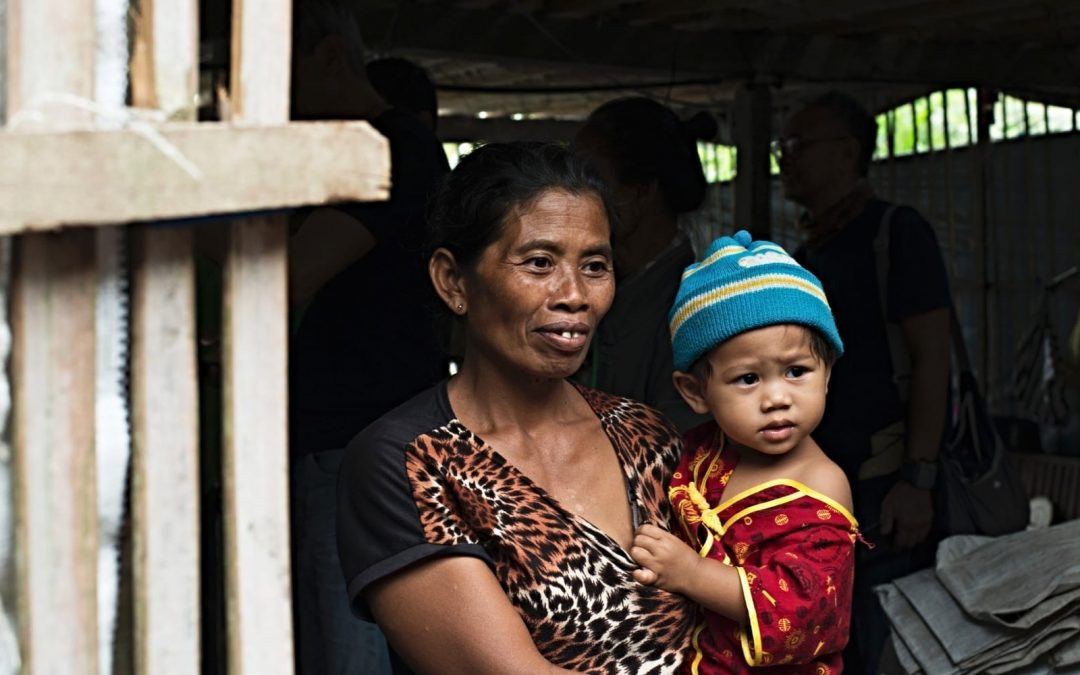Article 25 of the “Universal Declaration of Human Rights” (1948) declared, “Everyone has the right to a standard of living adequate to himself and his family, including food, clothing, medical care and necessary social services.”
Decades later, the U.N. Convention on the Rights of the Child (1989), asserted that every child has the inherent right to life, including health care, nutritious foods and clean drinking water.
In fact, estimates over the last five years indicate up to 80 percent of the world’s population live at some level of poverty, and almost 400 million children live in poverty.
Poverty is the denial of basic necessities and occurs in severe, moderate and situational circumstances worldwide. The “poor” are those who live in poverty.
How does religion speak into this basic human condition? How do the world’s religions understand poverty and what responses do they propose?
One might expect that religions adequately address or provide ameliorative strategies to reduce or eliminate poverty.
Quite the contrary, religious voices can justify or even enhance the permanency of poverty, some aspects of the Christian tradition being an exception.
Let us consider basic teachings of several of the great religions with respect to poverty. What follows is summarized from “Poverty and the Poor in the World’s Religions: Religious Responses to the Problem of Poverty,” edited by William H. Brackney and Rupen Das.
- The Confucian tradition holds that poverty involves one’s duties and need to work hard; poverty as a social reality is not desirable. It may be avoided by diligence, prudence and thriftiness. Poverty is also a training ground for virtues. Through the family especially, human relationships require piety and selfless love. All societies must work for the common good.
- The various Buddhist traditions present an interconnected world in which humans create suffering for themselves and others, largely through cravings. The goal of Buddhist thinkers is to eliminate the causes of suffering and to restructure society and reduce suffering both individually and collectively. Poverty is the principal cause of suffering.
- The Jewish tradition recognizes the reality of poverty, especially as it is characteristic of Israelite history as a nation and a people. Poverty is interwoven in the Torah and Prophets. A legal structure, embedded in Judaism, plus in the Hebrew Scriptures, built a heritage of looking out for the poor. Regularly in the Jewish calendar, there are opportunities to understand and mitigate poverty. Popular images in the Jewish communities often depict the “poor man.”
- The Christian tradition, founded upon the Jewish faith, recognizes the original creation of a benevolent God but wrestles with inequities. Even Jesus, Christian thinkers remind, recognized the continued presence of the poor in his society. Institutionally, the Christian church devised means to care for the poor, and laws in Christian nations took account of moral responsibility to deal with poverty. As part of the Christian mission, Christians developed elaborate relief efforts and services to alleviate the effects of poverty. Some Christians also think that poverty has no value in the Kingdom of God and must be eliminated.
- In Islamic teachings, God is the sole provider and sustainer of persons. The reality of poverty cannot be divorced from one’s faithfulness and obedience to Allah. Lack of piety, not trusting Allah, unrepentance and the influence of the “satan” are all reasons for poverty. Muslim communities hold firmly to obligations to give charity and share at key times during the year to alleviate the effects of being poor. Those who endure difficulties will be rewarded and, in some cases, being poor is good news for those entering the world to come. Work is not degrading.
- Within the major religions of India, the caste system or opposition to it are embedded in one’s understanding of poverty. There is little objection in Hinduism to the condition of poverty because it defines a certain place among the castes. Hindu responses have been informed by modern economic theories and by ascetic lifestyles. Having good karma can be achieved by hard work or a positive turn of events. Among Jains, humans are responsible for their conditions, and that through meditation and self-culture, bad karma can be eliminated. For Sikhs, poverty is a fact of life and may be avoided by a work ethic and practice of a life of humility. Sharing and tithing are virtues in Sikh communities.
An important conclusion of this inadequate survey is that, alone among the great religions, the Christian tradition provides a consistent theological foundation for understanding and effectively ameliorating poverty, primarily based upon the teachings of Jesus.
Christian tenets in response to the reality of human poverty are these:
- A boundless Creator God has provided for the needs and pleasures of all Creation. (“God saw everything he had made and indeed it was very good,” Genesis 1:31)
- In a sin-flawed world, there have been growing inequities among the human family. (“The whole creation has been groaning in travail until now,” Romans 8:22)
- God has again provided bountifully in Christ for the well-being of all peoples. (“I have come that you might have the more abundant life,” John 10:10)
- God, whose very nature is love (1 John 4:8), has declared a fulfillment of his nature among his disciples. “A new commandment I give to you: that you might love one another” (John 13:34)
As disciples of Jesus Christ, God’s love compels us not to rest until we do all in our capacity to eliminate poverty.
Further, as religious people, we have a duty to all peoples of faith to engage in constructive dialogue and concerted action to understand, mitigate and eliminate the severest forms of poverty that beset humanity.
Editor’s note: This article is part of a series of articles for the World Day of Social Justice (Feb. 20). The previous articles in the series are:
Why Social Justice, the Kingdom of God Go Hand in Hand by Colin Holtz
Walter Rauschenbusch: Social Gospel’s Most Compelling Advocate by Bill Pitts
Who Gets In? Who Doesn’t? The Law Has Nothing to Do With It by Terrell Carter
Wage Theft Robs Our Most Vulnerable Workers of Billions by Chris Sanders


